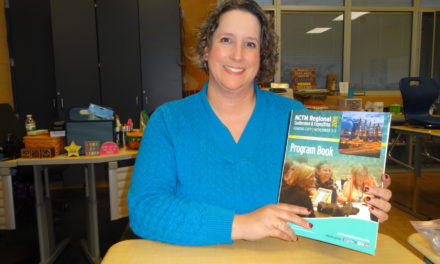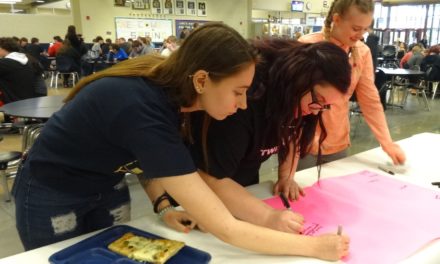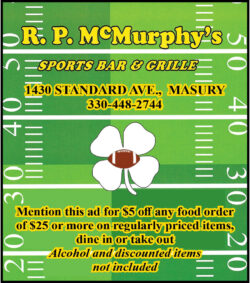Editor’s note: This is the third in a series of stories on the college admissions process based on a talk Brookfield Distinguished Alumni Hall of Fame inductee Brian Noble Jones gave to high school students on Sept. 20.
In writing a college admissions essay, the student-to-be does not have to have found a cure for a disease, invented a labor-saving device or free-climbed El Capitan.
“You do not need to have had an extraordinary experience in your life to write an extraordinary essay,” said Brian Noble Jones, associate dean of admissions at Weslyan University, Middletown, Conn., and a graduate of Brookfield High School. “The most effective essays I have read over the years are about really commonplace, everyday things.”
Jones said his favorite essay was about a tree in the writer’s front yard, “and what that tree meant to him over the years, relating to him.”
The author related that his grandfather had bought the tree and helped him plant it. It was a tree fort when he was a kid, a backdrop for homecoming and prom pictures and its colors were a measure of the change of seasons.
 “But then he pivots and he asks himself, ‘Am I gonna feel the same way about this tree when I come home in a year from my first time away at college? How is my family going to see me? How am I going to see my family? Is it going to change when I come back at Christmastime?’”
“But then he pivots and he asks himself, ‘Am I gonna feel the same way about this tree when I come home in a year from my first time away at college? How is my family going to see me? How am I going to see my family? Is it going to change when I come back at Christmastime?’”
“Incredibly well done, really effective, provided great insight into his mind and his work,” Jones said.
Another well-done essay concerned a young woman and her 200 pairs of shoes, he said.
“What was striking was how she wrote about these shoes, and every one had a different meaning to her,” Jones said. “She had the shoes that she put on when she went to her job as a waitress, and recounted the miles that she went on those shoes and the interactions she had with the patrons of the restaurant. She ran track and field, she had her spikes and her running shoes, and what that meant when she put those on, the person she became. She had on her dress shoes that she wore to church and how that’s a side of her. She used the shoes as a metaphor into her life, every given part of who she was.”
Jones recommended that students avoid “what we call the four Ds: death, depression, divorce and dating. The first three are really heavy and very difficult to sufficiently address in a 300- or 500-word essay. It doesn’t mean that these things don’t affect who you are, have not played an influence in shaping who you are as a person, it’s just very difficult to do effectively in that short amount of time. The dating one, a lot of students think they can be funny with it, but, invariably, I don’t think anybody’s read a really good dating essay. They just come across as juvenile.”
Stay away from edgy material, Jones added.
“In general, the essay topic should be something you feel comfortable handing to your parents or guardians and letting them read it,” he said. “If you’re not confident with them reading it, you don’t want to send it off to a bunch of strangers on admissions committees around the country.
“The other notion, unless you’re known as a really funny person in your day-to-day life, avoid humor, because it just tends to fall flat.”
College essays factor more in the decisions of more selective schools, Jones said.
“The more selective you are, it tends to play a bigger role in the process,” he said. “That does not mean that at larger schools or larger universities it goes unread. It still factors into it. Smaller schools spend more time on it.”
- Home
- _Home
- About
- Advertise
- Contact
- Donate
- Find NEWS On the Green in print
- Latest
- Subscribe
- The legal stuff
- About
- Animals
- Arts/Entertainment
- Business
- Cemetery
- Church news
- Community
- Community service
- Comprehensive Plan
- Cool photos
- county news
- Domestic violence
- Drainage
- Elections
- Environment
- Guest column
- Health care
- History
- Housing
- Letter to the Editor
- Library
- News
- Police
- Politics
- Profile
- Property maintenance
- Racism
- Recreation
- Religion
- Rescue-Fire
- Sanitary sewers
- Schools
- Sports
- State
- Streets
- ToDo
- Transportation
- Veterans
- Water service
- Zoning
Select Page








